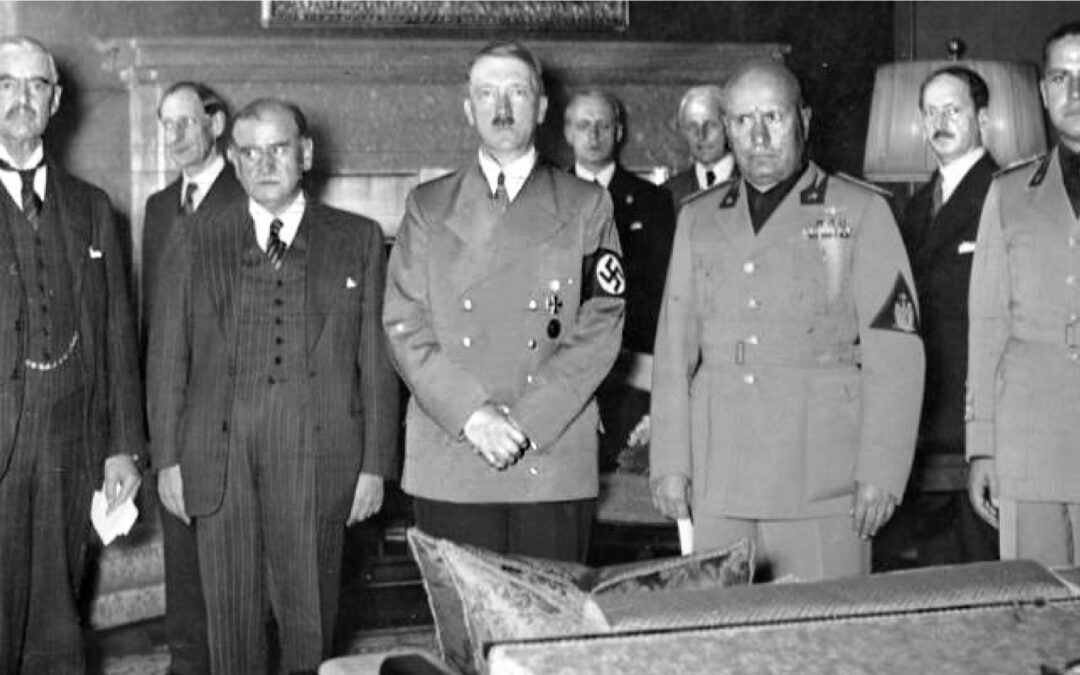85 years ago, it was the signing of the Munich Agreement which averted the outbreak of war but gave Czechoslovakia away to Nazi German conquest.
A Greater Germany
In the spring of 1938, Hitler began openly to support the demands of German-speakers living in the Sudeten region of Czechoslovakia for closer ties with Germany. Hitler had recently annexed Austria into Germany, and the conquest of Czechoslovakia was the next step in his plan of creating a “greater Germany.” The Czechoslovak government hoped that Britain and France would come to its assistance in the event of German invasion, but British Prime Minister Chamberlain was intent on averting war. He made two trips to Germany in September and offered Hitler favourable agreements, but the Fuhrer kept upping his demands.
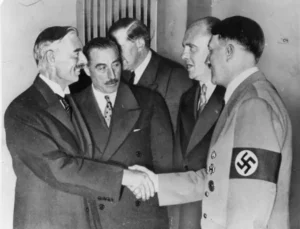
On September 22, Hitler demanded the immediate cession of the Sudetenland to Germany and the evacuation of the Czechoslovak population by the end of the month. The next day, Czechoslovakia ordered troop mobilization. War seemed imminent, and France began a partial mobilization on September 24. Chamberlain and French Prime Minister Daladier, unprepared for the outbreak of hostilities, travelled to Munich, where they gave in to Hitler’s demands on September 30.
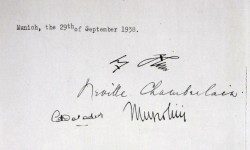
Daladier abhorred the Munich Pact’s appeasement of the Nazis, but Chamberlain was elated and even stayed behind in Munich to sign a single-page document with Hitler that he believed assured the future of Anglo-German peace. Later that day, Chamberlain flew home to Britain, where he addressed a jubilant crowd in London and praised the Munich Pact for bringing “peace with honour” and “peace in our time.”
Chamberlain’s aeroplane landed at Heston Aerodrome on 30 September 1938 and he spoke to the crowds there:
“The settlement of the Czechoslovakian problem, which has now been achieved is, in my view, only the prelude to a larger settlement in which all Europe may find peace. This morning I had another talk with the German Chancellor, Herr Hitler, and here is the paper which bears his name upon it as well as mine [shows paper to crowd]. Some of you, perhaps, have already heard what it contains but I would just like to read it to you: ” … We regard the agreement signed last night and the Anglo-German Naval Agreement as symbolic of the desire of our two peoples never to go to war with one another again”[1]
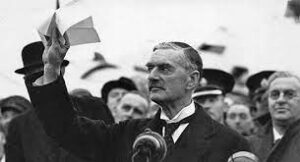
The next day, Germany annexed the Sudetenland, and the Czechoslovak government chose submission over destruction by the German Wehrmacht. In March 1939, Hitler annexed the rest of Czechoslovakia, and the country ceased to exist.
There are many debates with historians whether this type of ‘appeasement’ was a preventative measure for the beginning of World War Two or a continuity of weak attempts by the British Government to please Hitler.
The Munich Agreement was a shift in momentum and a boost in confidence for Hitler as his demands were met once more. This agreement was supposed to end the aggression that Germany was showing. It was meant to be a peaceful agreement but enabled Hitler to continue showing force and have his demands met. The Munich Agreement had the opportunity to stop the war and failed due to its weak predecessors and the strong pattern of appeasement towards Hitler that had already been established.
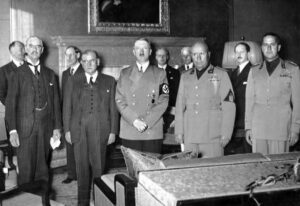
[1] Faber, David (2008). Munich, 1938: Appeasement and World War II. New York, NY: Simon and Schuster. pp. 4–5

